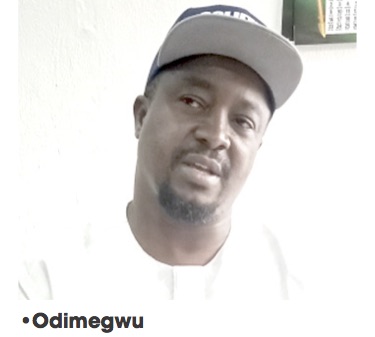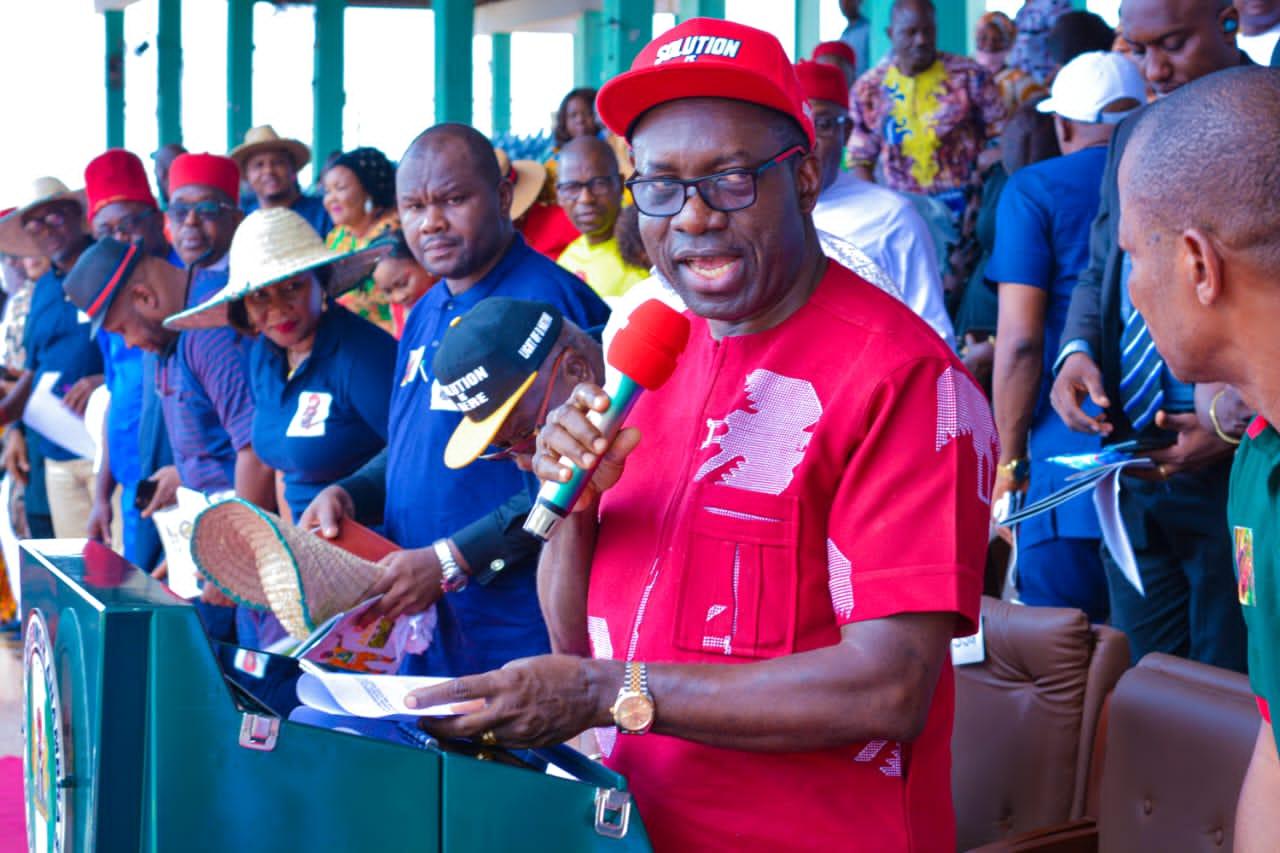Residents of Anambra State are not happy about the way and manner the state government is handling waste management issues in the state. All over the state, especially in the urban and semi urban centers, refuse dumps with suffocating stench dot the landscape.
Already, residents of the state have started complaining; and just recently, the Spiritual Director of Holy Ghost Adoration Ministry, Uke in Idemili North Local Government Area of the state, Rev. Fr. Emmanuel Obimma, mounted the pulpit to express his anger over the ugly situation.
Obimma, popularly known as Ebube Muonso, bared his mind during an adoration service where he also revealed to the congregation the revelation he had on the governor, Prof. Chukwuma Soludo.
But the state Commissioner for Environment, Mr Felix Odimegwu, in this interview explained to Daily Sun efforts being made to clean up the state.
Refuse dumps are gradually taking over parts of Anambra State especially the urban and semi urban centres and the stench oozing from there is horrible. What is the state doing to address this menace?
One major sector or so that the Ministry of Environment is involved in is management of solid wastes. In fact, you can rate a government that is working by how much they have been able to manage their solid wastes. When we came in, we met heaps and heaps of refuse all over the place. Some heaps were as high as almost two storey building and the Solution Governor went into action; first by engaging a committee headed by the Deputy Governor of Anambra State with some Transition Committee chairmen and other stakeholders involved in waste management. They went into action and the committee was given a clear mandate to bring down these mountains of refuse. And that was even before the commissioners were inaugurated. And that shows you the level of push the governor has towards getting wastes properly managed. That intervention is ongoing. And we are correctly dealing with that because that is what we came to see at the moment. But we all know that in developed climes, the practice of open, raw dumping of refuse is no longer in vogue and this ministry has developed plans of transforming that from having those waste dumps on the streets to house to house pickups. Already, before we came in, we noticed that the contractors involved in the waste management were owed by the previous administration. The governor magnanimously promised to clear these debts and re-engage the contractors. Right now, we don’t really have much contractors working right now as we speak but if you get to Onitsha town, probably Onitsha North, today most of the refuse bins you’ll see filled to the brim or littered around are no more in Onitsha town because I personally took it upon myself to make sure that this is cleared. In fact, my team and I work overnight. The other day, we descended on the heaps at Creek Road and then the one at Premier Breweries. We cleared it even though we have not finished clearing those ones. We had issues in Awka sometime back because of the dumpsite. You know dumpsite is strategic. If a dumpsite is not opened, it affects waste evacuation. So, for some time, we’re trying to talk with the community that poses a threat at the dumpsite; we have resolved the issue and then, operation has started. Most times, when the dumpsite closes, we have these issues of wastes piling up. The same thing happened sometime back when we had the same issue with some people in Obosi community that blocked the dumpsite entirely for almost four days. We had to bring them on board, talked with them, pacified them and then the dumpsite opened and work started. The governor is committed to tackling this issue of waste in Anambra State. For Idemili North, if you go through Nkpor and other areas, you will see dumps there. Obviously the contractors that were working there before stopped work and that has necessitated us to bring up expression of interests, requests for proposals for contractors to handle wastes. It is ongoing right now and by the time we finish with this exercise, contractors will be back to work across the state. We are working simultaneously everywhere and before the end of the month or thereabout, the issue of having wastes all over the place will be reduced basically to over 90 percent. Then, we are introducing house to house collection. We’re introducing bagging of wastes; you separate them at source. We’re introducing household bins that will be in place just as it is practised the world over. We want to get Anambra back to where the governor has tagged a smart, clean city where you can drive on the road and won’t see a dump on the road. The plan is to have wastes evacuated from the house to house at scheduled times. So, if your time of collection is maybe 9 o’ clock at Esther Obiako, people bring out their waste at that time and you will not bring it out again until the next scheduled time. And that will also encourage willingness to pay because the service is now personalised. So, for Onitsha North, most of the bins there, if you go there now, all the bins there are cleared. But we have other areas around the expressway that we still have piles but we are working on them. We’ll get them sorted out also. We have also started working in Awka also. About a month ago in Awka, we didn’t have what we have now. Serious plans are in place to make it sustainable. By the time we bring in contractors also, that will make it sustainable.
There were reports that those working with the Anambra State Waste Management Agency (ASWAMA) staged protests over unpaid salary arrears and poor remuneration. How is the state handling that?
For the ASWAMA protest, the state government under Soludo is carefully looking at these issues especially where it has to do with what we inherited from the previous administration. Yes, government is continuous. Yes, it is the same APGA to APGA government but, you know, when you have issues of people being owed, you really have to look at them critically. We are solving this matter. The governor, at the Exco meeting, has graciously approved the payment of their arrears and then they will get back to work and there won’t be any of these protests anymore.
The monthly sanitation exercise in the state usually records little or no enforcement. It is almost as if it doesn’t exist any longer. What is this ministry doing about it?
We came in about a month ago and we are putting plans in place for enforcement. For enforcement, it is holistic. Most of them are inter-ministerial. We have to involve the Ministry of Justice, Ministry of Works and Transport. So, it is inter-ministerial. The governor also has mandated the Ministry of Homeland to develop a work plan for enforcement. We have a lot of defaults all over the place. But our people need to be told that there are laws that are not meant to be broken. They must be disciplined to do the right thing. So, we would be enforcing our laws. We will make sure that those who have formed the habit of degrading the environment should be penalised as a deterrent for others. There would be no more open dumping into drainages. If they were having a field day before, we are going to tackle them. We are going to make sure that if you are caught, you will be forced to do, probably after you must have been taken to a mobile court, you will be fined and you will be forced to do hard labour; you know, get you somewhere, you’re also going to clear. We won’t take it lightly with enforcement this time around.
When you look at the dumpsites in various parts of this state, you see materials that would have added more value if they were recycled. What plans does the state have to set up recycling plants or encourage the existing ones established by individuals?
Previously, we had positions where we have contractors that manage our dumpsites. But we are also looking at a situation whereby we really don’t have to pay contractors to manage the dumpsites. We will concession dumpsites to people who really have invested in recycling business so that the waste now becomes their raw material. Government doesn’t have to pay again, spending huge sums of money every month trying to push the waste into the dump. But then, the people who have real investment in recycling will now come in; pay something to the government, take the wastes, recycle them, turn them into other products and bring them into the market again for sale. That’s the circular economy being emphasised here. Inasmuch as we want to remove wastes, we also want to align ourselves with the best global practice of circularity. When I came in, I had to look out for the major recycling companies that we have. I made visits to those companies – Chicason, Zek and others. These are major people who have actually invested heavily and we want to support them because what they’re doing is what will help the environment. They will help to take out litters, plastics from the streets. Chicason already has a company that takes PP and converts them to other PVC pipes and all that stuff. Then other companies in Onitsha; Zek takes bottles and turns them into wool, fibre and women’s attachments. These are very heavy investments. We have extended our hands of partnership with them and we want to support them. In that regard, we also want to encourage other people to come into that. I was also discussing with Innoson to get into recycling also. When we have all these companies come in, invest in recycling, I am sure that we will now get to a situation where the waste you call undesirable will now become something of value. People will now want to go and sell their wastes to these people. They will be rushing, doing competition over who will sell more. We will get to that level.
We understand that there have been a series of petitions and requests from the people on a number of environmental issues bothering them especially as they affect the deliberate act of building on waterways. How many of these issues have been treated?
These are the issues that are coming from the people who we have been sent to serve. We may not be everywhere at the same time but when they send in reactions like this, we must have to look at their problems. The governor has a listening ear. This is a governor that has had town hall meetings with presidents-general, landlords in Onitsha and environs, with people who built on drainages and waterways. He wants to hear from the people and take their reactions. So, he is a listening governor. Just recently, I was not able to attend exco because I had a meeting with Fegge community. The governor spoke about taking ownership of the environment. If what we are doing in the state is not community based, if it doesn’t have citizens’ participation, it may not be sustainable. So, while the governor was interacting with some landlords in Onitsha, some people came up and said ‘okay, Fegge said that it wants to tap into your vision, we want to do our own bit. So, we are going to de-silt areas, quarters and drainages in Fegge. But what we want the government to do is to park those de-silted areas. ’ So, yesterday, I had a timeout with them. We worked throughout. I was directing the work and they were clearing and removing all the silt from the gutters along Zik’s Avenue around the stadium. And then we helped them to evacuate those silts. So, this community based citizens’ participation. I am also using this medium to ask every other community – PGs, landlords – to toe in this line. This is the government of the people, by the people and for the people. So, we are the people. It is not we and them; it is us together in this. You take ownership. We are also developing what we call Environmental Marshals. It is a pro bono citizens’ participation arrangement where we can have marshals on each street, location and town that can hold meetings with their community, street or their neighborhood towards sustaining what we are doing; sensitising the people and helping to take ownership of their environment. So, we are setting that up. It will be run from the community and not from the government.






